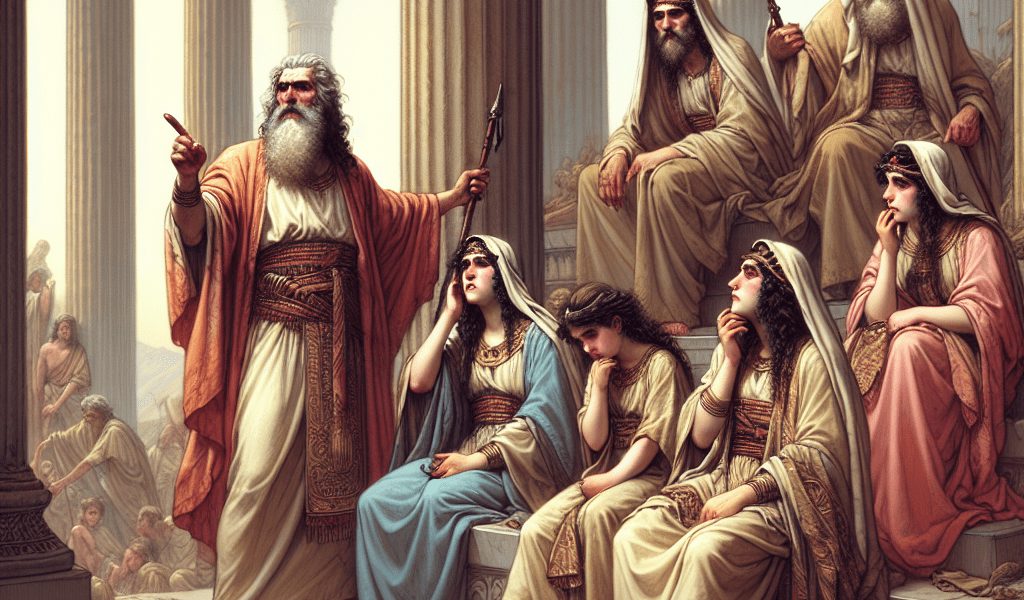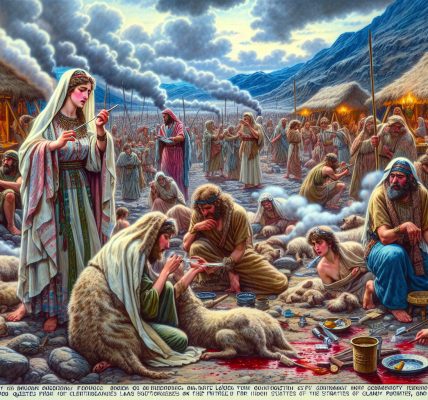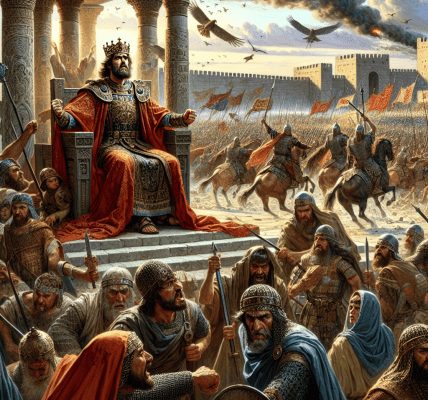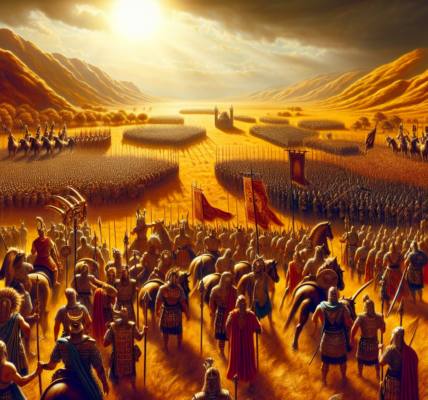Once upon a time, in the lineage of Joseph, there lived a man named Zelophehad. He was the son of Hepher, the son of Gilead, the son of Machir, the son of Manasseh. Zelophehad had five daughters and no sons. Their names were Mahlah, Noah, Hoglah, Milcah, and Tirzah. They were strong women, well versed in their faith and in the law handed down to their people by the great prophet, Moses.
Their father, Zelophehad, met his tragic fate in the wilderness, not as a follower of the rebellious Korah but due to his personal sin. With his passing, a legacy with no male successor seemed to be fading into oblivion. His daughters were troubled about this. They believed that their father’s lineage ought to continue despite his demise, and his name should not be blotted out from his family just because he had no son. And so, they gathered their courage and faith, to stand before Moses, the Israelites’ leader, Eleazar the priest, and the entire congregation at the door of the meeting tent.
“Our father died in the wilderness,” they declared, their voice reverberating in the quiet desert. “He was not part of Korah’s rebellion, but died of his own sin, and he left no sons. Why should our father’s name disappear from his family? Why not give us, his daughters, an inheritance among our father’s kinsmen?”
Moses, stirred by their plea, took their cause earnestly before Jehovah. In His wisdom, Jehovah spoke to Moses, agreeing with the daughters of Zelophehad. Their cause was just, and their plea was right. He instructed Moses to grant them an inheritance among their father’s brothers, declaring a new ordinance among the children of Israel. Should a man die leaving no son, then his inheritance would pass to his daughter.
Further, Jehovah decreed that if there were no daughters, then the inheritance would pass to the deceased’s brothers; if the deceased had no brothers, then the inheritance would pass to his father’s brothers; and if his father had no brothers, then the inheritance would go to the closest relative in his family.
With this new statute declared by Jehovah, the name of Zelophehad was not lost among his kinsmen, and the brave and righteous daughters of Zelophehad got their rightful due, opening a new pathway for equality in the laws of inheritance in Israel.
At this point, Jehovah commanded Moses to climb the Abarim Mountain, to see the land He had promised for the children of Israel, telling him that just like his brother Aaron, his time on earth was almost over because of disobedience which happened at the waters of Meribah of Kadesh.
In response, Moses asked Jehovah to appoint a new leader who would guide the Israelites, lest they become like sheep without a shepherd. In His benevolence, Jehovah commanded Moses to take Joshua, the son of Nun, a man filled with the spirit, and lay his hands upon him, transferring his honor to Joshua in front of Eleazar the priest and the congregation. From then on, Joshua would lead the Israelites, guided by Eleazar who would consult Jehovah through the Urim.
And just as Jehovah had instructed, Moses took Joshua, placed his hands upon him in front of Eleazar the priest and the entire congregation. The inheritance of Zelophehad was safeguarded, a new leader was appointed, and the people of Israel were prepared to enter their promised land, bearing witness to the wisdom and justice of Jehovah.




